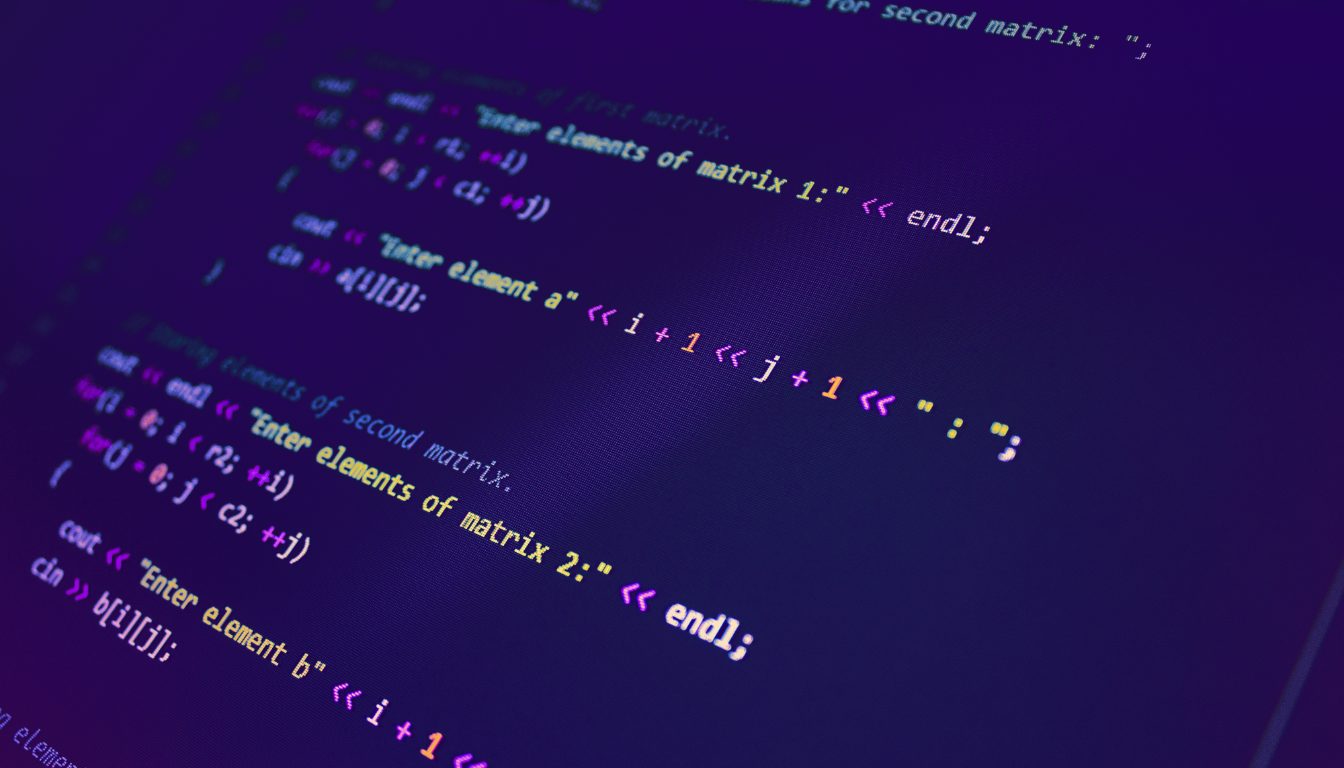
The Relationship Between POSIX and C-Programming for CDNs
Key Takeaways
- Defining POSIX as a family of standards established by IEEE for ensuring compatibility among operating systems.
- Understanding the role and purpose of POSIX in streamlining cross-platform software development.
- Exploring POSIX’s constituents, including system and user-level APIs, command line shells, and utility interfaces.
- Evaluating the concept of POSIX compliance and its relevance in Unix and non-Unix systems.
Understanding the mechanisms that drive our technologies is crucial in an increasingly digital world. This is especially true for the Portable Operating System Interface (POSIX). This standard maintains compatibility across operating systems and is pivotal in the Content Delivery Networks (CDNs) function. In this guide, we will unravel the concept of POSIX, shedding light on its definition, origins, principal components, and compliance requirements. We’ll also delve into the role of POSIX system calls in a npm package hosted on a CDN.
Unraveling the Concept of POSIX in Operating Systems
POSIX, or Portable Operating System Interface, is a family of standards specified by the IEEE. It serves as a bridge ensuring compatibility between different operating systems, making it an essential tool in software development. The origins of POSIX trace back to the need for a standardized interface that would facilitate cross-platform software development. This requirement led to the creation of POSIX, which now serves as a guideline followed by operating system vendors to create compatible systems. Baeldung provides a comprehensive guide to understanding POSIX.
One critical component of POSIX includes system and user-level application programming interfaces (APIs). Additionally, it encapsulates command line shells and utility interfaces, all of which significantly ensure software compatibility. This broad set of standards and interfaces allows developers to write a program once and run it on any POSIX-compliant system, saving time and resources.
POSIX compliance is a significant factor, especially when dealing with Unix and non-Unix systems. Most modern commercial Unix implementations, as well as many free ones, are POSIX compliant. Non-Unix systems such as Microsoft’s Windows NT and IBM’s OpenEdition MVS are also POSIX compliant. The level of POSIX compliance can significantly influence the performance and functionality of these systems. Here’s a resource that provides an in-depth look into POSIX compliance.
POSIX system calls are vital in npm packages hosted on a CDN. These calls include functions such as getrlimit, setrlimit, ulimit, setuid, setgid, seteuid, setegid, chroot, setreuid, setregid, getpgrp, setsid, setpgid, and more. These system calls are critical features of a npm package hosted on a CDN, like jsDelivr, and contribute to the functionality and performance of the package.
Navigating the Connection Between POSIX and C Programming
Unraveling the POSIX and C programming relationship is vital for a holistic understanding of how CDNs function. C programming plays a key role in the implementation of POSIX standards. Moreover, the POSIX standard heavily influences the functions in the C library. This influence is so profound that one might ask, “Does the POSIX standard require its specifications to be implemented in the C language only?” This section will dissect the relationship between POSIX and C programming, highlighting its significance for technical CDN buyers.
The Role of C Programming in Implementing POSIX Standards
POSIX standards and C programming share a symbiotic relationship. The POSIX standards were primarily designed with C programming in mind. Consequently, C programming plays a pivotal role in implementing these standards. Simply put, C serves as the building block for POSIX-compliant systems.
The Influence of POSIX on the C Library
Conversely, POSIX heavily influences the functions in the C library. POSIX standards provide a library of functions and many system calls. These system calls are accessible to C programs, thus extending the functionality of the C library. Therefore, we can confidently assert that POSIX profoundly influences the C library.
Is C Language the Sole Implementer of POSIX Specifications?
An intriguing question arises: “Does the POSIX standard require its specifications to be implemented in the C language only?” While C was the primary language used in creating POSIX standards, it’s not the only one that can implement these specifications. Other languages can access POSIX system calls if they provide a mechanism. However, considering the deep-seated relationship between POSIX and C, it’s no surprise that C is often the go-to language for POSIX implementations.
The POSIX-C Software Compatibility Connection
The relationship between POSIX and C takes on a significant role in the context of software compatibility. POSIX compliance ensures that a program written in C can run on any POSIX-compliant system without requiring any modifications. This compatibility is a cornerstone of cross-platform software development, making POSIX and C an inseparable duo in the tech world.
Why Understanding the POSIX-C Bond Matters for CDN Buyers
Comprehending the relationship between POSIX and C is crucial for technical CDN buyers. POSIX system calls, such as getrlimit, setrlimit, ulimit, setuid, setgid, seteuid, setegid, chroot, setreuid, setregid, getpgrp, setsid, setpgid, and more, are integral to the functionality of a npm package hosted on a CDN. For instance, these system calls feature prominently in npm packages hosted on jsDelivr. Understanding the POSIX-C relationship can help CDN buyers optimize their use of such packages, improving CDN performance and efficiency.
Deciphering POSIX Compliance Across Various Operating Systems
POSIX compliance is a pivotal element in the world of operating systems. Its implications stretch far and wide, influencing how operating systems function, interact, and evolve. In this section, we’ll delve into the concept of POSIX compliance, its impact on different operating systems, and its role in enhancing software portability and interoperability.
The Ins and Outs of POSIX Compliance
POSIX compliance refers to the adherence of an operating system to the POSIX standards. These standards, established by the IEEE, ensure compatibility among various operating systems. They govern system and user-level APIs, command line shells, and utility interfaces. An operating system that meets these standards is deemed to be POSIX compliant. This compliance equips an operating system with standard interfaces, enhancing its interoperability with other systems and software.
POSIX-Compliant Systems: Spotlight on Linux, BSD, and macOS
Many operating systems are POSIX compliant. Notable examples include Linux, BSD, and macOS. These systems have incorporated POSIX standards into their core, allowing seamless interaction with software written for POSIX-compliant environments. This means that software written for a POSIX-compliant Linux system can run on macOS or BSD without needing significant modifications—an undeniable testament to the potency of POSIX compliance.
POSIX Compliance in Non-Unix Systems: Windows NT and OpenEdition MVS
Moving outside the Unix world, systems like Microsoft’s Windows NT and IBM’s OpenEdition MVS also exhibit levels of POSIX compliance. While they may not fully conform to all POSIX standards, their partial compliance still allows for interoperability with POSIX-compliant software. However, their level of compliance may vary, and certain POSIX-specific features or functions might not be supported.
The Double-Edged Sword of Achieving Full POSIX Compliance
Achieving full POSIX compliance for an operating system is both a boon and a challenge. On the positive side, it ensures maximum software compatibility and interoperability, significantly simplifying cross-platform software development. However, it also presents challenges. Maintaining compliance with evolving POSIX standards can be resource-intensive, requiring ongoing updates and adaptations. Despite these challenges, the benefits of full compliance often outweigh the costs, particularly for systems widely used in diverse environments.
The Role of POSIX Compliance in Software Portability and Interoperability
At its heart, POSIX compliance is central to enhancing software portability and interoperability. By adhering to a common set of interfaces and standards, POSIX-compliant systems can interact seamlessly with each other and with various software. This means that software written for one POSIX-compliant system can run on another with little to no modification—a feature that significantly simplifies the task of software developers and broadens the reach of applications.
How POSIX Impacts Content Delivery Networks
Content delivery networks are a mainstay in the digital landscape, serving a large and increasing portion of today’s web content. Their role transcends traditional caching; CDNs are integral to the rapid, reliable, and secure delivery of content across the globe. In this context, POSIX standards play a crucial role in the functioning and efficiency of CDNs. Let’s explore this relationship in more detail.
POSIX: The Backbone of CDN Functioning
POSIX standards have significant implications for the functioning of CDNs. These standards ensure consistent and predictable interactions between the CDN’s operating system and host applications. This consistency is crucial for the CDN’s operation, as it facilitates the smooth execution of software across multiple systems and environments. In this way, POSIX serves as the backbone of the CDN, enabling it to deliver content efficiently and reliably.
Boosting CDN Performance and Efficiency with POSIX
POSIX standards also directly influence the performance and efficiency of CDNs. CDNs can ensure optimal system performance and resource utilization by adhering to these standards. This is because POSIX standards define a set of system interfaces and behaviors that promote efficient system operation. By aligning with these standards, CDNs can deliver content more quickly, handle larger volumes of requests, and provide a more reliable service to their users.
The Role of POSIX System Calls in npm Packages Hosted on CDNs
POSIX system calls are a key feature of many npm packages hosted on CDNs. These calls provide a standardized interface between the application and the operating system, enabling the application to request specific services or resources from the system. In the context of CDNs, POSIX system calls can fine-tune the performance of hosted npm packages, enhancing their execution speed and resource efficiency. This results in faster content delivery and a better user experience.
Benefits of POSIX-Compliant Systems in CDNs
Using POSIX-compliant systems offers several benefits for CDNs. Firstly, it enhances software compatibility, enabling the CDN to host and deliver various applications. Secondly, it improves system performance and efficiency, leading to faster content delivery. Lastly, it simplifies system management and maintenance, as POSIX-compliant systems adhere to a standard set of interfaces and behaviors. These benefits make POSIX-compliant systems a valuable asset for any CDN.
Future Trends: POSIX Compliance and CDN Technologies
Looking ahead, POSIX compliance will continue to be a key factor in the evolution of CDN technologies. As CDNs strive to deliver content faster, more reliably, and on a larger scale, POSIX standards will provide a stable foundation for these enhancements. Additionally, as new technologies such as edge computing and serverless architectures become more prevalent, POSIX compliance will enable CDNs to adopt these technologies more easily and effectively. In short, the future of CDN technologies is inextricably linked with POSIX compliance.
POSIX and Future Technological Developments: A Dynamic Duo
The evolving landscape of technology continually presents new challenges and opportunities. As we look to the future, it’s clear that the POSIX portable operating system interface will continue to play a vital role in shaping these advancements. Let’s delve into the potential impact of POSIX standards on future technological developments.
POSIX: Powering Emerging Technology Trends
The role of POSIX in emerging trends such as edge computing, serverless technologies, and 5G cannot be overstated. As edge computing pushes data processing closer to the end user, POSIX standards ensure compatibility and interoperability across various systems. Serverless technologies, which are revolutionizing how applications are developed and deployed, also benefit from POSIX compliance. It enhances their ability to operate seamlessly across multiple platforms. Similarly, as 5G promises unprecedented speeds and near-zero latency, POSIX-compliant systems will be critical in managing the increased data flow and maintaining performance.
Challenges and Opportunities in Enhancing POSIX Standards
While POSIX standards have proven invaluable, they are not without their challenges. As technology evolves, the standards must adapt to support new capabilities and functionalities. This could involve expanding the POSIX specifications or introducing new ones. On the flip side, these challenges present significant opportunities. Enhancing POSIX standards to meet future technological needs could pave the way for innovations and system performance and compatibility improvements.
The Importance of Continuous Evolution of POSIX Standards
As with any technological standard, the continuous evolution and adaptation of POSIX standards are crucial. This is particularly true in response to the rapid technological advancements we witness today. As new technologies emerge and existing ones evolve, POSIX standards must adapt to provide a stable, reliable, and efficient foundation for systems and applications. This continuous evolution is essential for maintaining current system performance and paving the way for future innovations.
Staying Updated on POSIX Developments: A Must for Technical CDN Buyers
For technical CDN buyers, staying updated on the latest developments in POSIX standards is not just beneficial—it’s essential. As POSIX standards evolve, they can significantly impact the performance, compatibility, and efficiency of CDNs. By staying abreast of these developments, you can make informed decisions about your CDN purchases and ensure your CDN is well-positioned to meet future demands. Remember, knowledge is power in the world of technology—and staying updated on POSIX developments is a key part of that knowledge.
Product Updates
Explore our latest updates and enhancements for an unmatched CDN experience.
Book a Demo
Discover the CacheFly difference in a brief discussion, getting answers quickly, while also reviewing customization needs and special service requests.
Free Developer Account
Unlock CacheFly’s unparalleled performance, security, and scalability by signing up for a free all-access developer account today.
CacheFly in the News
Learn About
Work at CacheFly
We’re positioned to scale and want to work with people who are excited about making the internet run faster and reach farther. Ready for your next big adventure?




